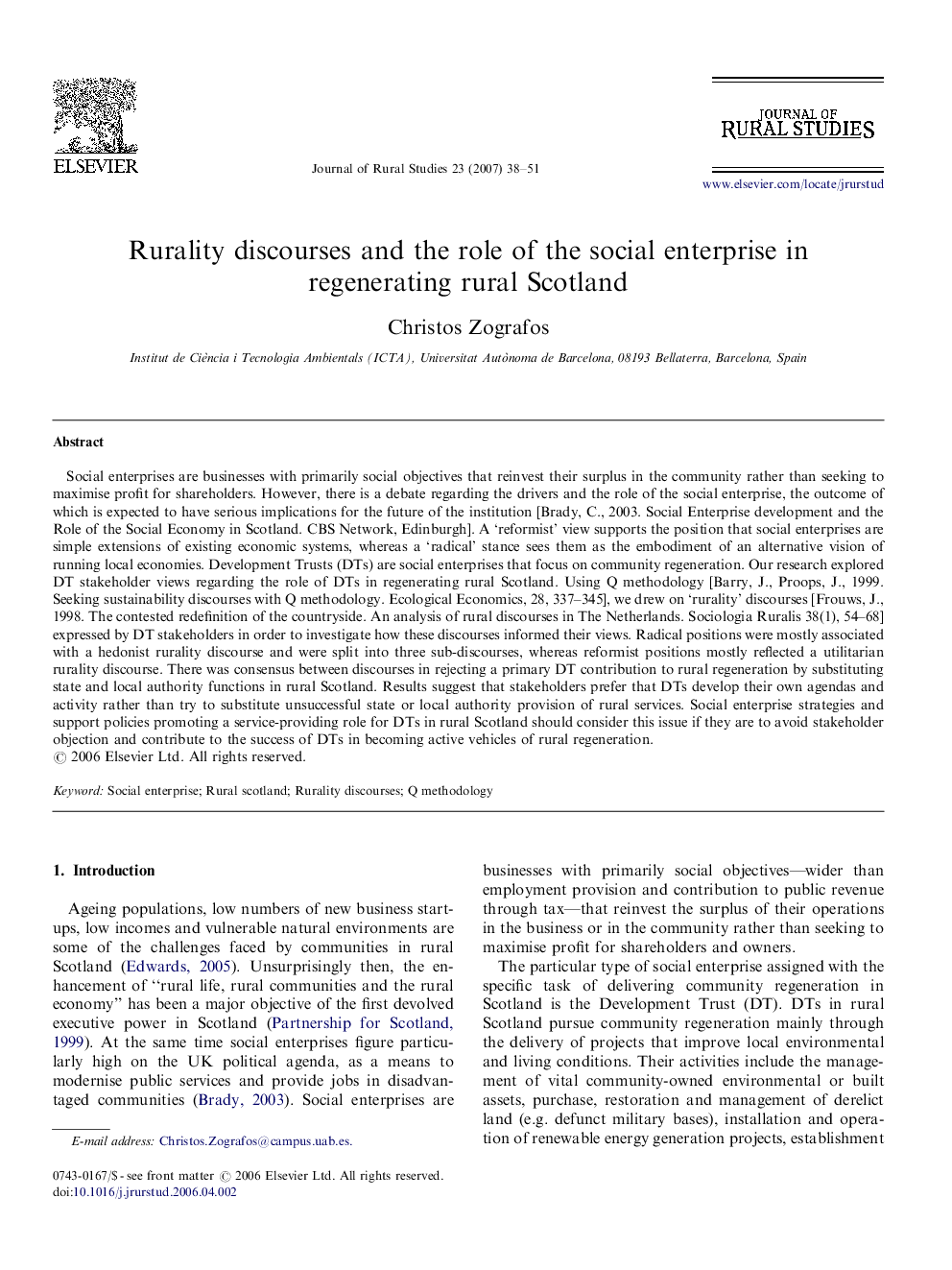| Article ID | Journal | Published Year | Pages | File Type |
|---|---|---|---|---|
| 92826 | Journal of Rural Studies | 2007 | 14 Pages |
Social enterprises are businesses with primarily social objectives that reinvest their surplus in the community rather than seeking to maximise profit for shareholders. However, there is a debate regarding the drivers and the role of the social enterprise, the outcome of which is expected to have serious implications for the future of the institution [Brady, C., 2003. Social Enterprise development and the Role of the Social Economy in Scotland. CBS Network, Edinburgh]. A ‘reformist’ view supports the position that social enterprises are simple extensions of existing economic systems, whereas a ‘radical’ stance sees them as the embodiment of an alternative vision of running local economies. Development Trusts (DTs) are social enterprises that focus on community regeneration. Our research explored DT stakeholder views regarding the role of DTs in regenerating rural Scotland. Using Q methodology [Barry, J., Proops, J., 1999. Seeking sustainability discourses with Q methodology. Ecological Economics, 28, 337–345], we drew on ‘rurality’ discourses [Frouws, J., 1998. The contested redefinition of the countryside. An analysis of rural discourses in The Netherlands. Sociologia Ruralis 38(1), 54–68] expressed by DT stakeholders in order to investigate how these discourses informed their views. Radical positions were mostly associated with a hedonist rurality discourse and were split into three sub-discourses, whereas reformist positions mostly reflected a utilitarian rurality discourse. There was consensus between discourses in rejecting a primary DT contribution to rural regeneration by substituting state and local authority functions in rural Scotland. Results suggest that stakeholders prefer that DTs develop their own agendas and activity rather than try to substitute unsuccessful state or local authority provision of rural services. Social enterprise strategies and support policies promoting a service-providing role for DTs in rural Scotland should consider this issue if they are to avoid stakeholder objection and contribute to the success of DTs in becoming active vehicles of rural regeneration.
